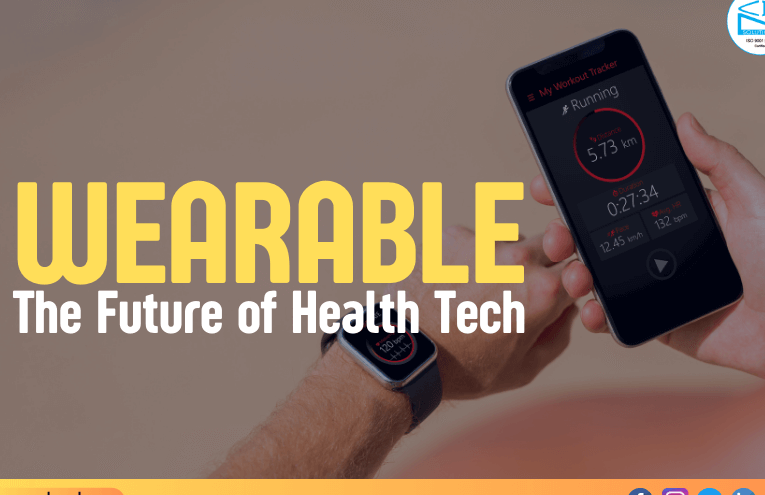Wearable health technologies are revolutionizing how we monitor and manage our health. These devices, which can be worn on the body, offer real-time insights into various aspects of our well-being, from physical activity to heart rate. As technology advances, wearables are becoming increasingly sophisticated and integrated into our daily lives. Here’s a comprehensive look at what wearable health technologies are and how they’re transforming personal health management.
Types of Wearable Health Technologies
Fitness Trackers
Fitness trackers are among the most common wearable health devices. They are designed to monitor physical activity and provide feedback on fitness levels. Key features include:
- Step Counting: Measures the number of steps taken throughout the day.
- Calorie Tracking: Estimates the number of calories burned based on activity levels.
- Heart Rate Monitoring: Tracks the user’s heart rate to gauge cardiovascular health and exercise intensity.
Popular examples of fitness trackers include the Fitbit Charge and the Garmin Vivosmart. These devices often sync with mobile apps to provide detailed reports and trends over time.
Smartwatches
Smartwatches combine fitness tracking with additional smart features, making them versatile tools for health and daily life management. They typically include:
- Activity Tracking: Monitors steps, distance, and calories burned.
- Heart Rate Monitoring: Provides continuous heart rate tracking and alerts for abnormal rates.
- Sleep Tracking: Analyzes sleep patterns and provides insights into sleep quality.
- Notifications: Allows users to receive and respond to messages, calls, and app notifications directly from the watch.
Examples of smartwatches include the Apple Watch Series and Samsung Galaxy Watch. These devices often include health-related apps and features like ECG (electrocardiogram) and blood oxygen monitoring.
Health Monitoring Devices
Health monitoring wearables are designed to track specific health metrics and provide more detailed insights into various health conditions. These devices include:
- Blood Pressure Monitors: Measure blood pressure and heart rate, providing data to help manage hypertension.
- Glucose Monitors: Track blood glucose levels, essential for managing diabetes. Continuous glucose monitors (CGMs) provide real-time glucose readings and trends.
- Electrocardiogram (ECG) Monitors: Record the electrical activity of the heart to detect irregularities such as atrial fibrillation.
Devices like the KardiaMobile ECG and the Dexcom G6 glucose monitor are examples of health monitoring wearables that offer critical data for managing chronic conditions.
Benefits of Wearable Health Technologies
Enhanced Health Monitoring
Wearable health technologies offer numerous benefits, starting with enhanced health monitoring:
- Real-Time Data: Provides continuous, real-time data on various health metrics, allowing for early detection of potential issues.
- Chronic Disease Management: Helps individuals with chronic conditions track their health more effectively and make informed decisions about their care.
- Preventive Care: Enables users to monitor their health proactively and adopt healthier lifestyle choices based on the data collected.
Convenience and Accessibility
Wearable devices offer convenience and accessibility, making health management more straightforward:
- Ease of Use: Many wearables are user-friendly and designed to be worn comfortably throughout the day.
- Integration with Mobile Apps: Most devices sync with mobile apps to provide detailed insights and recommendations based on the collected data.
- Accessibility: Wearables are available at various price points, making them accessible to a broad audience.
Motivation and Behavior Change
Wearable health technologies can also motivate users to adopt healthier behaviors:
- Goal Setting: Allows users to set fitness and health goals, track progress, and receive reminders and encouragement.
- Feedback and Insights: Provides actionable feedback and insights that can help users improve their physical activity, diet, and overall health.
Challenges and Considerations
Data Privacy and Security
One of the primary concerns with wearable health technologies is data privacy and security:
- Data Protection: Wearable devices collect sensitive health information, which must be protected from unauthorized access and breaches.
- User Consent: Users should be aware of how their data is used and shared, ensuring that their consent is obtained for data collection and usage.
Accuracy and Reliability
The accuracy and reliability of wearable health devices can vary:
- Calibration: Some devices may require regular calibration to ensure accurate readings.
- Validation: Users should verify that the wearable device has been validated and tested for accuracy by regulatory agencies or medical professionals.
Integration with Healthcare Systems
Integrating wearable health data with traditional healthcare systems can be challenging:
- Data Integration: Ensuring that data from wearables can be integrated with Electronic Health Records (EHRs) for a comprehensive view of a patient’s health.
- Clinical Validation: Healthcare providers need to assess the clinical relevance of data provided by wearables to make informed medical decisions.
The Future of Wearable Health Technologies
Advancements in Technology
The future of wearable health technologies is promising, with several advancements on the horizon:
- Enhanced Sensors: New sensors and technologies will provide more accurate and comprehensive health data.
- Artificial Intelligence: AI and machine learning will improve data analysis and provide more personalized health insights and recommendations.
- Integration with Health Systems: Better integration with healthcare systems will enable more seamless communication between wearables and healthcare providers.
Expanded Use Cases
Wearable health technologies will likely see expanded use cases:
- Preventive Health: Greater focus on preventive health and wellness, with wearables offering insights to prevent health issues before they arise.
- Personalized Medicine: Wearables will contribute to personalized medicine by providing data tailored to individual health profiles.
Wearable health technologies are transforming how we monitor and manage our health, offering real-time data, convenience, and motivation for healthier living. From fitness trackers and smartwatches to advanced health monitoring devices, these technologies provide valuable insights that can enhance both preventive care and chronic disease management. As technology continues to evolve, wearable health devices will play an increasingly important role in personal health management, offering new opportunities for improving health outcomes and enhancing quality of life.

